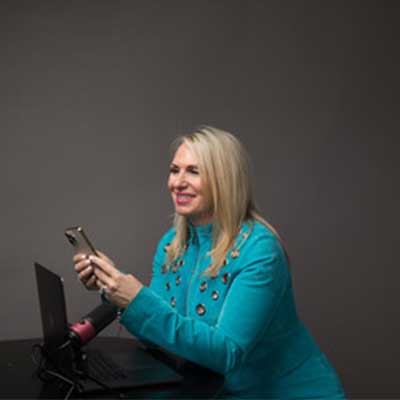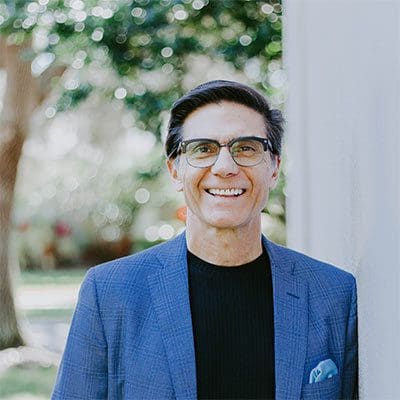- How to Make New Friends in Retirement – Dr. Marisa G. Franco Retirement Wisdom 27:13
A lot changes when you retire, including your social connectivity. Dr. Marisa G. Franco, author of Platonic: How the Science of Attachment Can Help You Make–and Keep—Friends, has research-based advice on making new friends as an adult, and creating new connections.
_________________________
Delaying Retirement? Many of my clients are. But they’re using this time to get a jump on their future.
You could wait until you retire and ask What Now? – and then scramble – or drift. Instead, why not start now to proactively explore your options and design your new post-full-time work life?
Find how how the Designing Your Life process (developed by Bill Burnett & Dave Evans at Stanford) can help you unlock a new direction. Apply the same principles of design thinking that Nike and other leading companies use to design your future. Learn more about my One-on-One Coaching and small group programs. Take the first step toward your new life today – schedule a call.
__________________________
Bio
Dr. Marisa G. Franco is the New York Times bestselling author of Platonic: How the Science of Attachment Can Help You Make–and Keep—Friends; and she is a professor, speaker, and psychologist. Her research focuses on the powerful role of our communities in shaping who we are and why we flourish.
Marisa uses her expertise to advise clients and companies on how to nurture deeper connections. She believes that connections underlie everything—our health, our motivation, our work, and our sense of who we are.
Dr. Franco holds a Ph.D. in Counseling Psychology from the University of Maryland and works as a professor there. She writes for Psychology Today and she has been a featured psychologist in The New York Times, NPR, and Good Morning America.
____________________________
For More on Dr. Marisa G. Franco
Platonic: How the Science of Attachment Can Help You Make–and Keep—Friends
_____________________________
Podcast Episodes You May Like
Where to Retire – Silvia Ascarelli
Plays Well with Others – Eric Barker
Thinking Better to Live Better – Dr. Woo-kyoung Ahn
The Emotional Side of Retiring – Kate Schroeder
____________________________
How to Win the Retirement Game
(It Might Just Be the Most Important Game of Your Life)
What Readers Are Saying:
“Definitely the best book I’ve read on the non-financial aspects of Retirement.”
“…the book is amazingly readable, and chock full of insights.”
“This is a great gift for anyone anticipating Retirement years or already in the thick of it.”
Amazon Barnes & Noble Bookshop.org
____________________________
Wise Quotes
On Making Friends as an Adult
“So making friends is about having a certain type of setting or environment. Rebecca G. Adams, she’s a sociologist, describes it as having repeated unplanned interaction and shared vulnerability. So that’s school, right? You see someone every day, you have recess, you have gym, you have lunch, right? For some people that’s work, for other people not, because sometimes people go to work and they’re not quite vulnerable, which is why one study found that the more time we spend together at work, the less close we feel. And I think, in general, as we move forward to adulthood, we just don’t inhabit those same types of settings that really foster connection. So if we rely on this concept of making friends that we had when we were kids, we’re just going to be like, it should just happen, right? And then we don’t. We’re not realizing we’re not in that setting anymore. So it’s not going to just happen for you. And in fact, there is a study on older adults that found that people who thought friendship happened based on luck were lonely five years later, whereas those that saw it as happening based on effort were less lonely five years later because they made that effort.”
On Vulnerability & Initiating
“So, in the book I describe vulnerability as sharing something that’s authentic to you that feels risky or feels exposing or feels like someone could like shame or reject you for. So initiating is certainly one of those things, right? That tends to feel very vulnerable for people. But in general, we find in the research, and this is something of a thread that I’m going to pull out, is our brain’s negativity bias. When we predict the impact of our behaviors, our predictions are inaccurate and they’re often more cynical than the truth, right? So I talked about the liking gap as an example of that. But in the research on vulnerability, the example is research on something called the Beautiful Mess Effect. That when I picture someone doing something vulnerable, like talking about the flaws in their own body or confessing to someone that they love them, right? And I evaluate it, I see it more positively. But when I think of myself doing that same thing, I view it more negatively and I think people will view it more negatively. And so we have this bias when we think about ourselves, we’re like, People aren’t going to like this. They’re gonna think I’m weird. But when other people do the exact same thing, we’re like, Oh my gosh, that’s so great. They’re so authentic. They’re so genuine. They really trust me. Something that’s vulnerable that I struggle with is asking for support from other people. So what I’ve started to do is literally ask myself, What if this person asked for support from me? How would I read this? And then I try to use my answer to that question to evaluate the impact of how it’ll come up if I ask for support.”
On Defense Mechanisms
“When the self is involved, our self defensive mechanisms come into play and we don’t actually perceive the world accurately. So it takes us to take a step back and think of what if someone initiated with me? Wouldn’t I feel great that someone was really interested in getting to know me? Or if someone got vulnerable with me and I’d be like, Oh my gosh, I feel so close to them. I’m so honored that they were willing to share. And so we can sort of try to use that same process when we evaluate ourselves to get around the the defensive hijacking that our brain has when our brain is basically in survival mode – protect the self at all costs. Not realizing that sometimes that can really harm our relationships and friendships.”
______________________________
Intro and Outro voiceovers by Ross Huguet.




























Already a Member? Login Here.
Not Yet a Member? Join the Conversation Today!